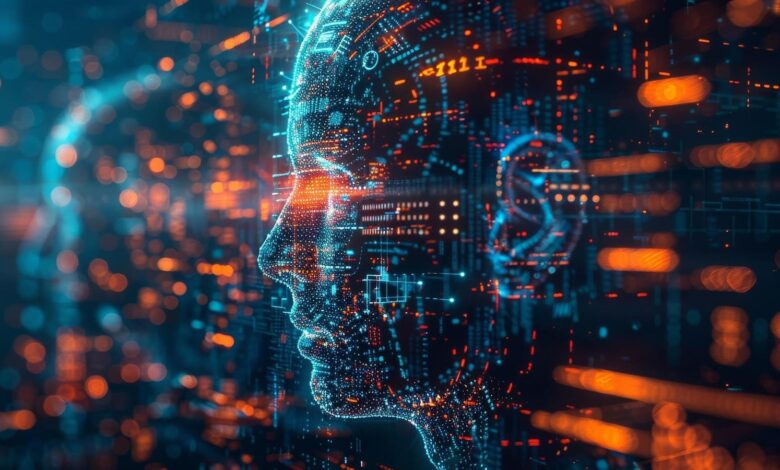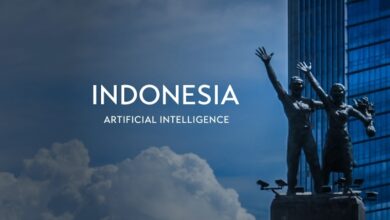How Generative AI Will Change Jobs In Financial Services

How Generative AI Will Change Jobs In Financial Services
From the arrival of the telephone to online banking and mobile payments, many waves of transformation have swept through the banking, insurance and finance industries.
But AI – and generative AI, in particular – promises to be the most transformational of them all.
If you’re only familiar with tools like ChatGPT and Midjourney that generate words and images, then you probably think they are very cool but might not quite grasp how they will change the world – or even your job!
But the truth is they are just the tip of a technological iceberg that will automate many routine tasks, streamline internal business processes and augment the way we work on a daily basis. According to an Accenture report, banking and insurance are the two industries set to be the most heavily impacted.
So, if you’re in the money game, read on to find out how your job could soon change, as well as learn about some of the broader changes this could mean for society.
What Is GenAI And Why Is It So Important For Finance?
The term “generative AI” (GenAI) refers to tools powered by algorithms that can create new content based on existing data. ChatGPT may have taken the world by storm with its ability to write anything from prose and poetry to complex computer code, but its potential uses go far beyond.
Of particular relevance to banking and finance professionals is its ability to interpret data, from simple statistics to vast spreadsheets filled with huge amounts of real-time transactional information.
Rather than presenting information as complex graphs or charts that then have to be interpreted, AI can quickly highlight what is important and what is just noise that can be ignored. Importantly, these interpretations can be personalized depending on the role of the person they’re intended for.
This means professionals will spend less time on routine information-based tasks and more time making decisions and strategizing, as well as on face-to-face business. One survey found that 75 percent of junior financial services workers believe up to a quarter of their workload could be automated by AI.
So here’s a rundown of how generative AI will be integrated across specific tasks and responsibilities that are critical to keeping the financial world ticking!
How Will Generative AI Change Finance Work?
Generative AI tools will streamline transaction processing by automating many of the routine tasks such as data entry, validation and reconciliation. As GenAI systems become more powerful and accurate, this will mean banks and other financial institutions can offer faster, more reliable and perhaps even cheaper services to their clients.
All financial services institutions dedicate significant resources to detecting and preventing fraud. This involves analyzing potentially millions of transactions and flagging those with specific characteristics that indicate fraud. GenAI can do this far more quickly than any human and can also report results in a way that makes it simple for a human risk assessor to step in and understand why a particular transaction could be suspicious.
Managing investments is another important element of financial services, and generative AI algorithms can assist with analyzing markets, assessing the performance of companies and other assets, identifying trends and evaluating the effectiveness of investment strategies. Investment managers can then spend more face-to-face time with their clients, getting a better understanding of their needs and requirements.
Insurance underwriting is likely to be revolutionized by generative AI, which is able to understand and interpret information around risk, providing more detailed and accurate assessments that will help underwriters make more informed decisions. It can also be used to generate synthetic data, which follows the patterns and rules of real-world data, to fill holes when there is not enough real-world data available.
For those working on the regulation and compliance side of financial services, generative AI will help with analyzing and interpreting complex regulatory texts and legal documents. This means banks and insurers will more quickly identify risks of costly and damaging breaches.
Customer services will also be heavily impacted by the GenAI revolution. We may have found chatbots and automated customer service systems frustrating in the past. But a new generation of ChatGPT-like chatbots, powered by large language models (LLMs), will answer many questions more quickly and efficiently than human operators, improving customer satisfaction and retention rates. Rather than meaning human customer service agents are redundant, they will have more time for complex and sensitive work.
The Future Role Of Financial Professionals
As generative AI increasingly transforms information-based work across the finance industry, the role of finance professionals in society will shift, too.
The traditional view of the highly pressured analyst working late into the night, hunched over a monitor and interpreting charts and statistics, will hopefully become a thing of the past.
Many will find that unique human abilities, such as communication, interpersonal skills, strategic decision-making and teambuilding, will become increasingly important to their career progression.
The time saved by automating routine tasks can instead be used to build firmer relationships with clients and colleagues. Additionally, there will be more chances to pursue ongoing learning and skills development, creating professionals capable of adapting to the changing nature of their business.
This is a change that everyone, not just those in financial services, will have to prepare for. Those who embrace it now – in the relatively early years of the AI revolution – will set themselves up for more fulfilling and rewarding careers.



